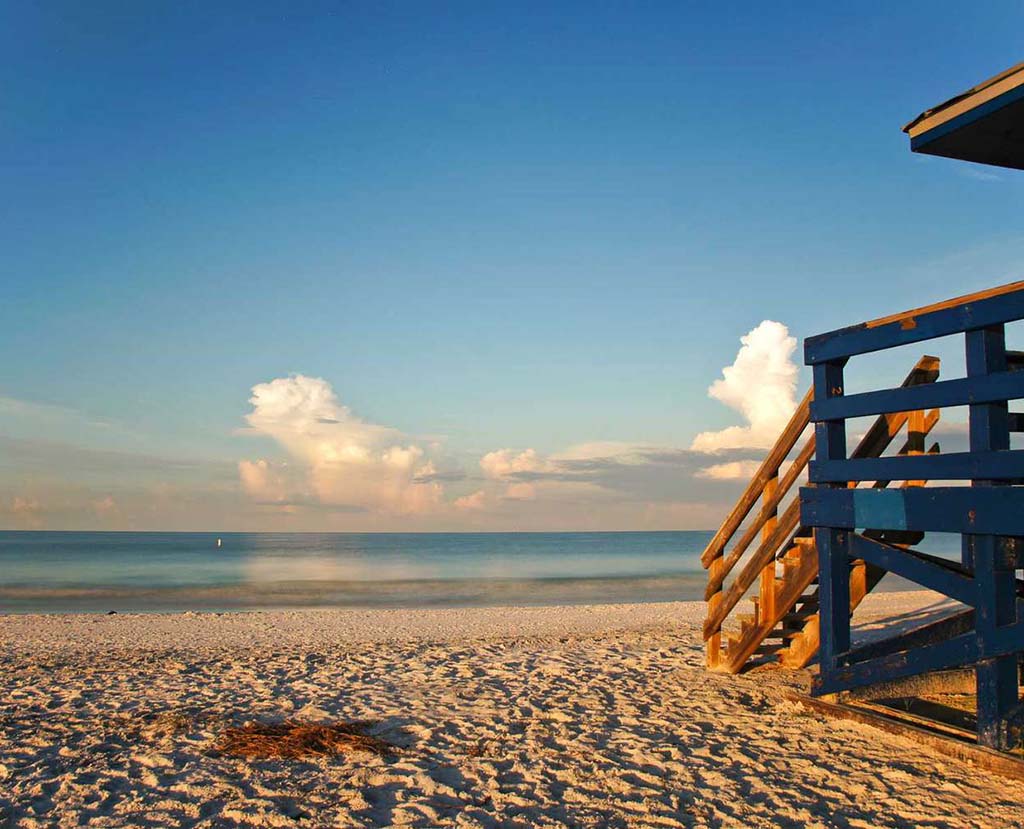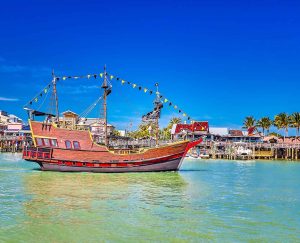Florida, known as the “Sunshine State,” is a place brimming with enchanting beaches, abundant natural landscapes, and diverse cultural experiences that attract countless tourists. If you’re planning a trip to Florida, there are some important things you need to know to better enjoy your journey. Special thanks to trivago.co.uk for providing travel advice and route planning, making our trip smoother and more enjoyable.
1. Consider Traveling in Spring or Fall to Avoid Crowds and Heat
Florida’s climate is ideal for year-round travel, but the high temperatures and humidity in summer can be uncomfortable. Additionally, summer is the peak tourist season, and attractions and beaches are often crowded. The best times to visit are spring (March to May) and fall (September to November). During these seasons, the weather is warm and pleasant, and there are fewer tourists, allowing you to enjoy Florida’s natural beauty and various activities more comfortably.
2. Plan to Stay in Florida for at Least a Week
Florida has so many places worth exploring that a week is almost the minimum amount of time needed. Whether you want to experience nightlife in Miami, have fun at theme parks in Orlando, or relax in Key West, you need ample time. A well-planned itinerary allows you to fully experience the diversity of Florida without feeling rushed.
3. Add State Parks to Your National Parks Itinerary
Florida not only boasts famous national parks like Everglades National Park but also has many beautiful state parks. State parks such as Caladesi Island State Park and Silver Springs State Park offer rich natural landscapes and outdoor activities. Kayaking, hiking, bird watching, and camping are very popular activities. These parks have fewer visitors, allowing you to enjoy a quieter and closer-to-nature experience.
4. Be Aware of Safety During Atlantic Hurricane Season
Florida is located in a hurricane-prone area, with the Atlantic hurricane season running from June 1 to November 30. If your travel plans fall within this period, be sure to monitor weather forecasts and stay informed about hurricane alerts. trivago.co.uk recommends purchasing travel insurance to cover potential disruptions caused by weather conditions. Additionally, familiarize yourself with local shelters and emergency measures to ensure safety in case of an emergency.
5. Be Prepared for Driving and Traffic Chaos if You Rent a Car
Florida’s traffic situation can be challenging for some tourists, especially in big cities like Miami and Orlando. Drivers here can be aggressive, and traffic congestion is common during peak hours. When renting a car, make sure to familiarize yourself with local traffic rules and stay alert. Using GPS navigation can help you better plan routes and avoid getting lost or missing exits.

6. Book LGBTQ-Friendly Destinations in the Sunshine State
Florida is known for its inclusivity and diverse culture, making it very friendly to LGBTQ travelers. Places like Miami and Key West, in particular, offer a rich LGBTQ nightlife and activities. trivago.co.uk recommends researching and booking LGBTQ-friendly accommodations and attractions in advance to ensure a pleasant and safe travel experience.
7. Embrace Coffee
Florida’s coffee culture is deeply influenced by Cuban traditions, especially in Miami and Tampa. Be sure to try the local Cuban coffee, known for its strong and sweet flavor. In Miami’s Little Havana neighborhood, you can find many cafes serving Cuban coffee, allowing you to experience authentic Latin American flavors. This coffee is not only a great way to stay energized but also an important aspect of experiencing local culture.
8. Bring Sun Protection to Avoid Sunburn
Florida’s sunshine is dazzling but also very intense. Be sure to take adequate sun protection measures during outdoor activities. Bring high SPF sunscreen, sunglasses, hats, and protective clothing to prevent sunburn. Additionally, remember to stay hydrated by drinking plenty of water to cope with the heat.
9. Yes, You Can Legally Drink on Some Beaches in Florida
On some beaches in Florida, drinking alcohol is legal, but it’s important to check the specific regulations of the beach you’re visiting. For example, South Beach in Miami allows visitors to drink in designated areas but requires adherence to public safety regulations. While enjoying the beach scenery and leisure time, drink responsibly and stay safe.

10. Hire a Captain for a Stress-Free Boating Adventure
Florida’s waters are picturesque, perfect for boating and fishing. If you want to enjoy a stress-free boating adventure, trivago.co.uk recommends hiring a captain. A professional captain is familiar with local waters and can provide safety assurance, allowing you to fully enjoy your time on the water without worrying about navigation issues.
11. Learn the Meaning of Lifeguard Station Flags
On Florida’s beaches, lifeguard stations usually display different colored flags to indicate the sea conditions and swimming safety for the day. Understanding these flags is crucial and can help you decide whether it’s safe to swim. Generally, a green flag indicates good sea conditions, a yellow flag signifies moderate danger, a red flag denotes high danger and advises against swimming, and a purple flag warns of dangerous marine life such as jellyfish or sharks.
Florida is a place full of sunshine and vitality, with abundant natural landscapes and diverse cultural experiences. With the detailed travel guide and advice from trivago.co.uk, you can better plan and enjoy your trip to Florida. Remember these travel tips to ensure a safe and enjoyable journey, fully experiencing everything this enchanting state has to offer. Whether exploring magnificent national and state parks or enjoying the beaches and urban life, Florida will meet all your expectations. We hope this article helps you find the best travel routes in Florida and enjoy every moment of your trip.


